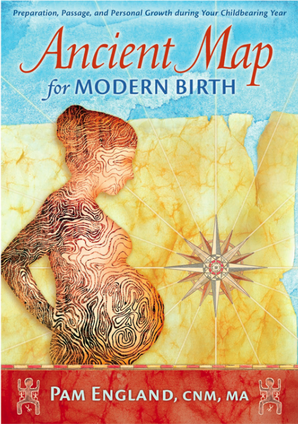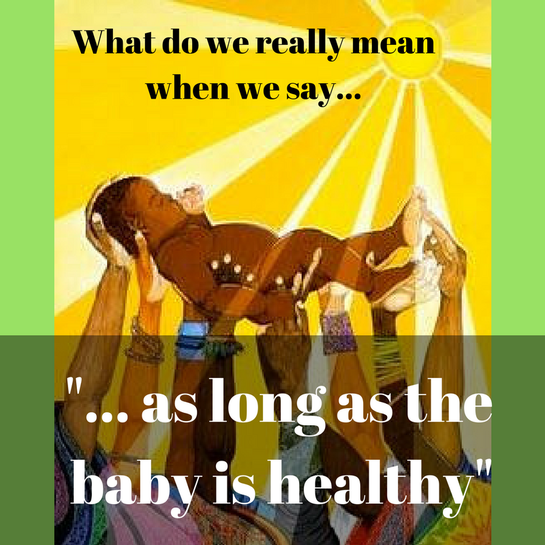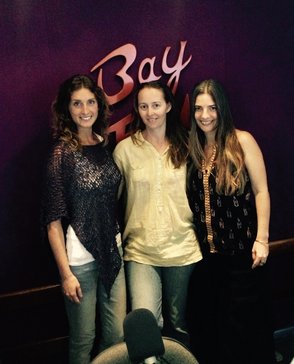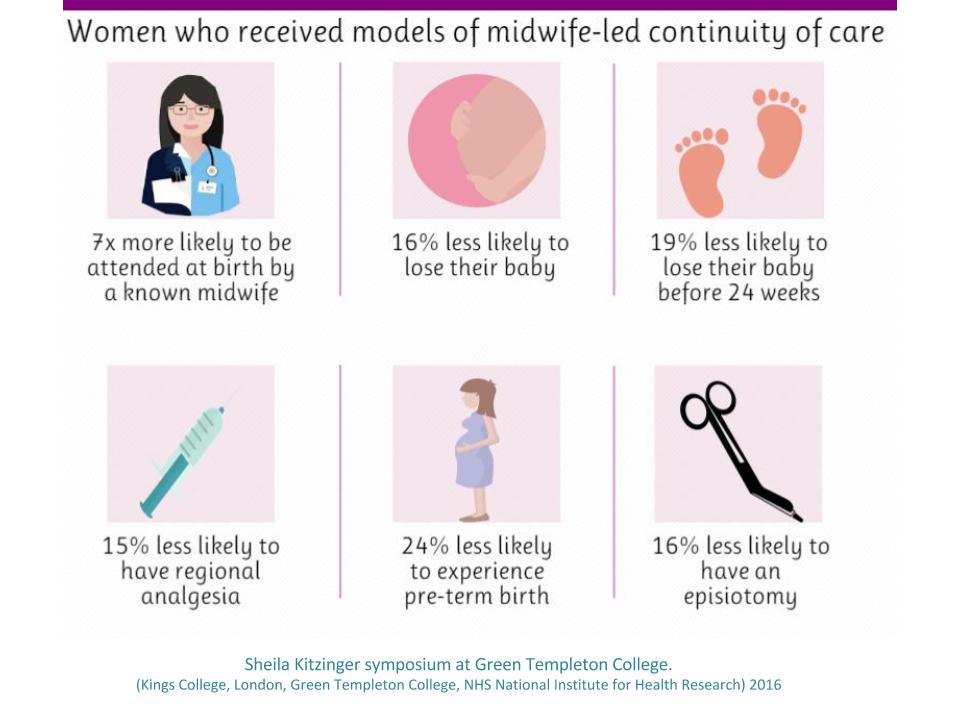 Pam Englands newly released book cover Pam Englands newly released book cover
This episode of Pregnancy Birth and Beyond Radio features an interview with Pam England, author, midwife, artist and founder of Birthing From Within. Her first book 'Birthing From Within An Extra Ordinary Guide to Childbirth Preparation' released in 1998 has sold over a 1 million copies. Pam's newly released book is called 'Ancient Maps for Modern Birth'. One of the themes in this new book explores the Hero's Journey as a of map for childbirth preparation. In this interview I ask Pam What is Birth as a Hero's Journey. Just a quick note on the HJ, a very basic Analysis of HJ consists of three parts, preparation, ordeal and return. The term or more so the map so to speak of a Hero's Journey, was coined by the late Joseph Campbell, an American mythologist, write and lecture born in 1904 and who passed away in 1987. Best known for his seminal book The Hero with a 1000 faces. In 'Ancient Maps for Modern Birth', Pam England likens the HJ to the parents journey through pregnancy to parenthood, which too at a basic level consists of three aspects – pregnancy (preparation), labour and birth (the ordeal) and the postpartum journey (the return of the hero). Additional key features of this episode include: The Sumerian myth of Inanna Decent. Fathers and partner in their own hero's journey to becoming a parent. Joesph Campbell on birth as a heroic journey for the mother. Postpartum, birth story integration as part of the hero's return journey. Here are a couple of great quotes about the Hero's Journey. “The journey of the hero is about the courage to seek the depths; the image of creative rebirth; the eternal cycle of change within us; the uncanny discovery that the seeker is the mystery which the seeker seeks to know. The hero journey is a symbol that binds, in the original sense of the word, two distant ideas, the spiritual quest of the ancients with the modern search for identity, always the one, shape-shifting yet marvelously constant story that we find.” by Phil Cousineau The Hero Path "We have not even to risk the adventure alone for the heroes of all time have gone before us. The labyrinth is thoroughly known ... we have only to follow the thread of the hero path. And where we had thought to find an a-bom-I-nation we shall find a God. And where we had thought to slay another we shall slay ourselves. Where we had thought to travel outwards we shall come to the center of our own existence. And where we had thought to be alone we shall be with all the world.” by Joseph Campbell
0 Comments

We all want a healthy baby, there's no question of that, but I suspect there are underlying beliefs to the common phrase "As long as the baby is healthy" that deserve closer examination.
To me, it sounds like we're giving up elements of birth we think may not be important when we say this. What are we really sacrificing when we say "As long as the baby is healthy?" I have identified 6 underlying beliefs to this common phrase, but there are bound to be more. Please comment below if you think there are others! The underlying beliefs I have uncovered are: 1. “I am not qualified. Someone else needs to manage my birth.” 2. “My rights and my health and safety are subordinate to my baby’s. I must comply with my carer’s treatment.” 3. “The hospital/my maternity carer wants the same outcome as me.” 4. “Birth is dangerous and needs to be managed medically. Positive births are due to luck.” 5. “Labour and birth are simply painful, pointless torture. My partner has only a limited ability to support the process.” 6. “My experience is irrelevant and women who seek a positive experience are selfish and exposing the baby to risk.” In Part 1 of this series, I cover beliefs 1-3, which focus on women's rights in childbirth and informed consent. Please give us your feedback. Do you think this information speaks to expectant parents, new to the world of birth and probably concerned about risks and that talked about a lot in society? My thanks to Bashi Hazard and Bec Jenkinson for their contributions to this episode.
In Part 2 of this series, we cover beliefs 4-6:
My thanks to the following speakers for sharing their contributions to this episode.
- Sally Cusack
 Gabrielle, Lara & Tamar Gabrielle, Lara & Tamar
Raising teen girls can be a little hairy at times, and a little bit scary too... but not to fear, this episode we'll be giving you the low down on parenting teen girls.
From body image and self esteem, to dating and 'the sex talk' to teen girls finding their own scene of self and more right here on Pregnancy Birth and Beyond Radio. If you have a preteen or teen daughter or if you have ever been a teen girl yourself, this episode will enlighten you and leave you a little more prepared and inspired for the joys and challenges of raising teens... we don't waste anytime here getting right to the core of it. Yes, 'the sex talk' matters and perhaps you will be a little surprised at what we discover. Helping our teen daughters find their own sense of identity, including giving the space for them to discover their own sexual identity while maintaining trust and healthy boundaries with you the parents. The three ways mothers most influence your daughter according to Steve Biddulph from his book Raising Girls; one, you as a role model. The way you care for others and yourself, they was you deal with your own challenges, ups and downs, mishaps and successes all influence they way your daughter will in turn hers. Second, the living sharing of family values, keeping of agreements. While your daughter may roll her eyes or blow you off... she is more likely to show up for her friends according to the family values imparted upon her. And thirdly, the other women you bring into her life. What friends you bring into the home and into her life will influence her sense of what it is to be a woman. Yet, it is not only mothers who have a huge influence on their daughters, fathers too play an equally significant role. Fathers are a daughters first significant male relationship, role model of man and what his role is in a relationship. Listen to find out more. Also, Make sure you catch the last 10minutes (at 28 minutes in) of the podcast in which Tamar Ben-Hur performs her piece from the 'Vagina Conversations' Byron Bay 2017 titled 'In Relationship' not to be missed with the opening line "My vagina had a near death experience" Our guests for this episode include the creator of Girl Wisdom, Gabrielle Goldklang. Gabrielle has been supporting teens in varied roles, classes, workshops to connect with themselves, their hearts and each other as they grow into young women. Gabrielle brings her extensive wisdom and insights as to what teen girls are saying they want and feel. Tamar Ben-Hur is a couples relationship therapist who works with couples wanting to create deeper connections with each other. Tamar and her partner have been married for 25 years and is the mother of a 16 year old daughter and her son who is 13. Tamar shares with us from both her professional background and from her first hand experience as a mother of a teen daughter. Produced and hosted by Lara Martin.
Eleven years ago I became a mother for the first time... standard hospital care... different staff coming in and out... changes of shift... and a 'healthy baby', 'healthy mother' at the other end of it. Sure, we got through it, but wow, how I wish I knew then what I know now. Seven years ago I started a deep process of inquiry into that experience and my second birth. What was missing in the first that I had in the second? Continuity of care, where that care was founded on the understanding that over 80% of women can expect to give birth normally, given the right circumstances.
In this podcast we hear from two women who have birthed recently in these circumstances, after previously experiencing conventional hospital care. We also hear from the late Dr Marsden Wagner, Professor Alec Welsh and Professor Sally Tracy about how obstetricians can collaborate with midwives to provide the safest care for the most women. The model discussed here is "midwifery group practices" or "MGPs" that can run out of hospitals. Women who use MGP care are followed through by a primary midwife through her pregnancy, birth and up to 6 weeks postnatally. And the comparisons with conventional hospital care are stark.
Thank you Professor Lesley Page and the symposium for permission to use this image.
--- Check those stats again: With midwifery-led continuity of care, women are less likely to lose their baby and experience interventions, and the risks that they carry. The National Maternity Services Plan of 2011 calls for “All Australian women will have access to high quality, evidence based, culturally competent maternity care in a range of settings close to where they live.” The plan also recognises the importance of continuity of care for women. Unfortunately after six years of this Plan, only 8% of women can access this form of care. The vast majority of women have conventional hospital care where they see different midwives throughout their pregnancy, a different set again at the birth, and a couple of days' care in the hospital, with yet another set of midwives attending her. Midwives in the system do their best, but it's up to us women to make change. Find out more in our latest podcast (below) on this important issue. Please share it with whomever you think would benefit from this information. Special thanks go to mums Candice and Tiffany for being willing to share their stories in this podcast. We'd love to hear any feedback too! warm wishes -Sally
Good evening, it's been a full weekend for our family, with a night away camping with friends, a big fire, waaay too much food and lots of singing and playing instruments and kids playing until very late. We're ready for an early night.
But I have some questions that have been milling around in my mind for some time now, .....so I've decided to put together a survey (my first ever) for pregnant women. I'm curious to see if the questions in this survey get to the core of what influences pregnant women in their birthing decisions. My hope is that the information gleaned from women's responses will guide me in the content for a series of radio documentaries relating to preparing for childbirth. It is important for our show to be always guided by our audience. For this particular project, I want to include the voices of women, followed by academics and other experts who address the issues the women raise. I am keen to hear from all pregnant women regardless of their birthing philosophy or choices. I do admit, however, that I am particularly keen to hear from women who are planning a hospital birth. As I mentioned above, this survey is my first, and I'm starting out with just the free version of the survey tool, which keeps my questions to a maximum of 10 questions. I actually feel that's a good start though, and it will keep me succinct in my questions. So, this process of surveying pregnant women will be an organic one, much like pregnancy and parenting really. And it will be guided by experience, ie how it is received by women. I thank you for your patience with this new endeavour of mine as I feel my way forward with it. What you can be sure of is my motivation, which is to reach into the heart of women and provide information that empowers and inspires them. You can also be sure that all information given in the surveys will be kept anonymous - and will be received with the deepest gratitude. Please share this survey with all pregnant women you know! warm wishes for a peaceful evening, Sally 20/10/2016 International Normal Labour and Birth Conference 10-13 October 2016, Sydney AustraliaRead Now
Last week Pregnancy Birth and Beyond Radio made the trip down to Sydney to cover this year's International Normal Labour and Birth Conference. And I was the lucky one to pack my bags and represent our team!
I set myself the ambitious goal of interviewing all of the keynote speakers - a goal I almost achieved. For two of the three days of the conference I ran around with my trusty recorder and camera having as many on-the-spot conversations I could manage with our busy, but obliging interviewees. In between my interviews, I got to catch a lot of the presentations, and wow, there is such vital information that is shared at these conferences. Information that women and their families going into birth would really benefit from knowing too. (Did you know that babies born under epidural can have diminished ability to regulate their moods 12 months later? -K. U. Moberg) Information that most people don't know yet could prevent life long health challenges. The importance of this information, and our team's invitation to hear it, confirmed in my mind the important role our team plays in bringing the research to women. So in the coming weeks and months, we'll be bringing you these interviews - there's a lot of editing for me to do first though! And who was I lucky enough to interview?
I also got to interview Ann Kinnear, Executive Officer of the Aust. College of Midwives and one of the lead authors of important policy documents such as Towards Normal Birth about the state of maternity services reform and Bec Jenkinson from the Midwifery Research Unit of Univ. of Queensland about informed consent and maternity care plans. Another special treat is an interview with an obstetrician about the challenges she faces in delivering woman centred care. Fascinating listening. We're very much looking forward to sharing these informative discussions with our listeners. Stay tuned! Above in the video, you can check out a mini showreel of the event I've put together to give you a snippet of this wonderful conference . We extend our sincere thanks to the Conference for their invitation and we are thrilled to have their endorsement. We look forward to collaborating with the conference convenors again in the future! - Sally |
Details
NE PLUS ULTRA
AuthorsThe authors of this segment are varied, each post will indicate the author of that particular post. For more information about our team, visit here Archives
February 2019
Categories |

 RSS Feed
RSS Feed